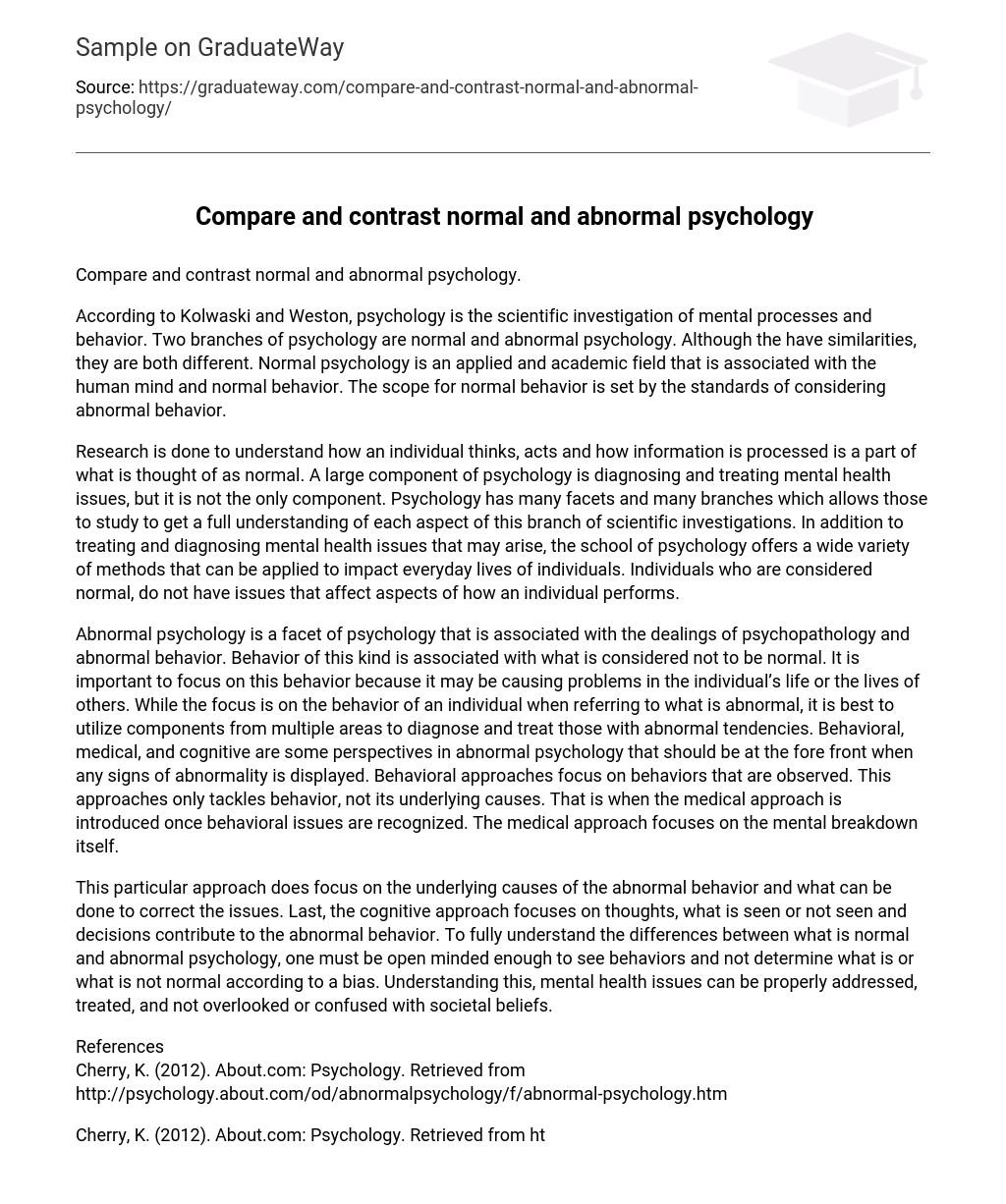According to Kolwaski and Weston, psychology involves the scientific study of mental processes and behavior. There are two branches of psychology: normal psychology and abnormal psychology. While they share similarities, each branch has distinct characteristics. Normal psychology focuses on the study of the human mind and normal behavior. The parameters for normal behavior are determined by comparing it to abnormal behavior.
Psychological research focuses on comprehending an individual’s cognition, behavior, and information processing within the normal range. While psychology recognizes the significance of diagnosing and treating mental health issues, it also encompasses multiple branches that contribute to our knowledge in various scientific domains. In addition to addressing mental health concerns, psychology provides diverse approaches to improve individuals’ daily lives. It is crucial to highlight that ordinary people do not encounter any impediments that hinder their performance.
Abnormal psychology, a field within psychology, focuses on psychopathology and abnormal behavior that diverges from the norm. Understanding and addressing this behavior is essential as it can create challenges in an individual’s life or affect others. To diagnose and treat individuals with abnormal tendencies, a combination of elements from behavioral, medical, and cognitive perspectives is recommended. The behavioral perspective examines observable behaviors while the medical approach addresses underlying causes after identifying behavioral issues. The main goal of the medical approach is to directly target mental breakdowns.
This approach focuses on identifying the underlying reasons for abnormal behavior and finding ways to resolve them. In addition, the cognitive approach highlights thoughts, perception, and decision-making as factors that contribute to abnormal behavior. To fully comprehend the difference between normal and abnormal psychology, it is important to remain open-minded when observing behaviors and avoid subjectively defining what is considered normal based on personal biases. By acknowledging this, mental health issues can be appropriately recognized, treated, and not overlooked or misunderstood due to societal norms.
References
- Cherry, K. (2012). About.com: Psychology. Retrieved from http://psychology.about.com/od/abnormalpsychology/f/abnormal-psychology.htm
- Cherry, K. (2012). About.com: Psychology. Retrieved from http://psychology.about.com/od/psychology101/f/psychfaq.htm
- Kowalski, R., & Westen, D. (2011). Psychology (6th ed.). Hoboken, NJ: Wiley.





